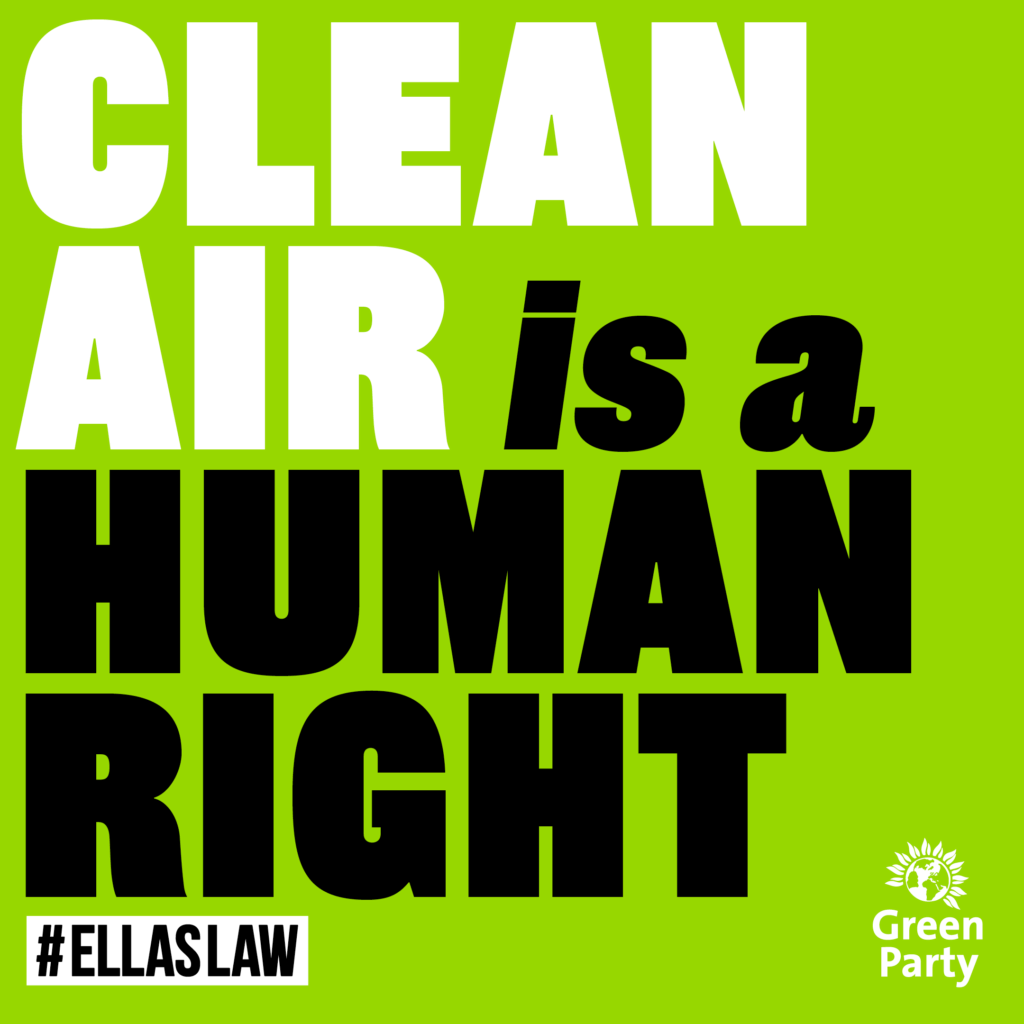UK government to mandate a clean bill of respiratory health

There’s something in the air at Westminster. The Clean Air (Human Rights) Bill, tabled by Green party peer Baroness Jenny Jones, has had its second reading at the House of Lords. Unlike previous motions that were brushed under the Axminster carpet, this time it seems almost certain that our human right to clean air is set to be enshrined in UK law.
The proposed legislation, Ella’s law, has been named after nine-year-old Londoner Ella Kissi-Debrah, the first person in the UK to have air pollution listed as an official cause of death. If made law, it would tackle all forms of air pollution, both indoor and outdoor, and involve the UK Health Security Agency in setting and reviewing pollutants and their limits.
Furthermore, it would enhance the powers, duties and functions of various agencies and authorities in relation to air pollution and establish a Citizens’ Commission for Clean Air (CCCA) with powers to institute or intervene in legal proceedings.
Key stipulations relating to Schedule 2, Indoor Air Pollutants:
● The Environment Agency (EA) must on an annual basis review the pollutants and the limits set out in Schedules 1 to 3.
● The Secretary of State must also amend the pollutants and the limits set out in Schedules 1 to 3 to reflect revised guidance and good practice statements from the WHO, ISO and UNECE.
● Regulations about assessing air pollution in England and Wales under subsection (1) must ensure the sampling, measurement and reporting of indoor air pollutants listed in Schedule 2.
● Require owners of buildings which— (i) are used as places of work and to which health and safety provisions apply; or (ii) are regularly accessed by members of the public, including children, to assess and report concentrations of indoor air pollutants measured in accordance with the most up to date ISO standards.
● Require developers to assess and report concentrations of indoor air pollutants in accordance with the most up to date ISO standards in newly refurbished or constructed residential developments during the first 12 months of occupation.
● Local authorities in England and Wales have a duty to achieve clean air throughout their area within five years of the coming into force of this Act and maintain clean air throughout their area thereafter.
● Where the Citizens’ Commission for Clean Air (CCCA) has reason to believe that any persons or relevant national authorities have failed to comply with their duty, the CCCA may issue a notice requiring them— (a) to comply with their duty; (b) to take specific steps in order to achieve compliance; and (c) to provide to the CCCA written information of the steps taken, or proposed to be taken, for the purpose of complying with their duty.
Momentum is building. The Clean Air (Human Rights) Bill is now due to pass on to the House of Lords’ Committee and Report stages. The initiative goes hand in hand with the latest Indoor Air Quality (IAQ) report from the National Engineering Policy Centre (NEPC). Commissioned by Government Chief Scientific Adviser Sir Patrick Vallance, with a foreword by England Chief Medical Officer Professor Chris Whitty, the report calls for a radical reform of ventilation and infection resilience across all buildings and public transport, with a heavy emphasis on IAQ standards being set, monitored and regulated.
Ella’s legacy could also result in a clean bill of financial health for the UK economy. The government’s Environment Act Targets Impact Analysis (dated 06/05/22) assesses the implications of reducing average particle pollution by 35%. The financial benefits would be five times greater than the money spent cleaning the air.
What can you do to prepare for forthcoming legislation?
Rensair portable air purification offers the built environment a practical solution for bringing Indoor Air Quality up to the required standard. By partially offsetting mechanical ventilation with air purification, we can save you 40% on energy consumption, while at the same time providing better infection control and reducing your carbon footprint.
